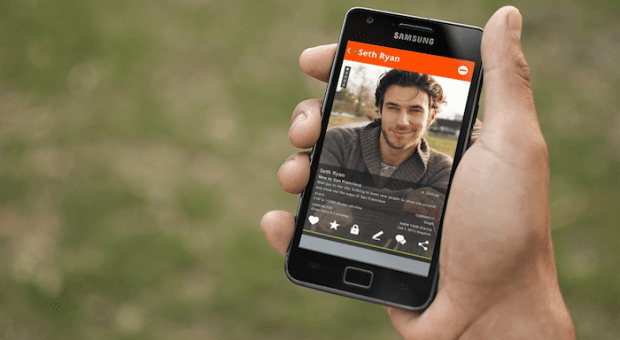With its two-year anniversary coming up, the gay dating app Hornet has earned a massive global following thanks to its combination of an excellent user interface and a trademark social conscience.
Hornet CEO Sean Howell, 33, says the app has 1.5 million users around the world, with 18 percent monthly growth, and employs a full-time staff of 11 in design, marketing and customer service.
Howell, who comes to the tech world from a background in financial analysis, conceived of Hornet in 2011 after being frustrated with the sorts of gay apps that were available. He assembled a tech team, raised venture capital and launched the app in the Apple App Store in September 2011.
“We just thought the gay apps could be better,” he says. “We thought the way they made money was kind of cheesy and not a good user experience.”
Hornet did away with the limits most apps put on their free versions. “On Grindr, for example, you can only see the nearest 100 people. Where I live in San Francisco, that would be basically my block,” Howell explains. “On Hornet, you can literally view all 1.5 million users if your phone has enough power.”
Hornet allows you to browse by proximity but sets no upper limit on the number of users it will display. There’s also a feature that allows users to search other cities, which is useful if you’re travelling and want to meet people before you go.
Howell says the app is more of a social environment than other gay apps that are focused on hooking up —“95 percent of our users display face pics,” Howell says. “You can ask someone what’s a good restaurant nearby, whereas on some of the other apps that would annoy users who are looking for something else.”
One of the app’s most prominent features is the Know Your Status feature that encourages users to get tested for HIV. Not only does it display the date of the user’s last HIV test (as reported by the user), but it reminds the user to get tested again every six months and it removes the badge if a fresh testing date isn’t entered.
Hornet is working to develop relationships with HIV services in countries where the disease is endemic to help promote testing and prevention. It recently helped stage a huge testing event in the Philippines, where, Howell says, people are often reluctant to get tested because of fear of talking frankly about HIV with a doctor.
The company will soon be launching an awareness campaign about HIV stigma, encouraging people with HIV to come out and HIV-negative people to change their attitudes about others living with HIV.
It’s all part of the activist spirit of Hornet’s founders, Howell says. The company has been involved in campaigns against Russia’s “gay propaganda” laws, and Howell personally travelled to St Petersburg to help mobilize against the law. Because of this he is now banned from entering Russia.
His activist work has also taken him to Tanzania, Rwanda and Uzbekistan in the last year – all places where he says he was proud to find Hornet users – and he has worked with the US State Department on LGBT issues overseas.
“Everyone who works at Hornet is a big social activist. We want the app to help change the world,” Howell says.


 Why you can trust Xtra
Why you can trust Xtra


